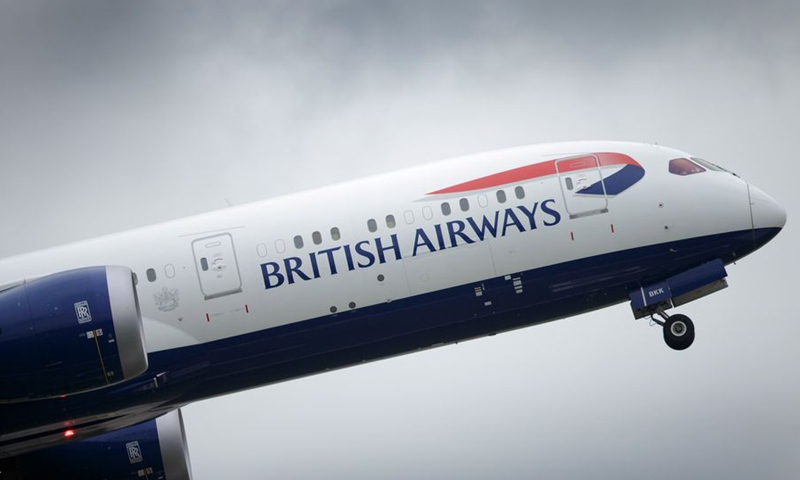British Airways doubles Chinese cabin crew bases, showing confidence in Chinese market growth

British Airways is doubling their Chinese-speaking cabin crew bases in China, and the first batch is expected to enter service in May, the airline's chief customer officer said on Thursday, and the company is bullish on the growth of the Chinese economy and the rising travel demand.
"We will add 50 cabin crew members in China, as each half for Beijing and Shanghai," said Calum Laming, the chief customer officer of British Airways in a group interview in Beijing. The expansion will make the total cabin crew of 100, making China be the airline's second biggest international base after India, he added.
It brings a lot of benefit for our customers with the ability to speak Chinese and the cultural awareness as a benefit for also helping other colleagues understand more, he said.
British Airways restarted services to Shanghai in April and Beijing in June last year, and now flies seven times per week to Shanghai and four times to Beijing, with a combined total of 11 flights.
In December of 2019, there were 17 flights between Chinese mainland and UK, with British Airways the second-largest operator of flights to and from China at that time, according to aviation data provider Cirium sent to the Global Times on Thursday.
Currently, British Airways is the fourth largest operator after three China's three domestic giants, Air China, China Eastern Airlines and China Southern Airlines from China.
Although the Chinese market is still slower to recovery, the recovery is speeding up, Laming said, adding that the company has seen a very strong demand, particularly for tourists.
"We have a very strong Christmas and new year travel season from China, and we're looking forward to a very strong Chinese new year travel season coming up as well," he said.
Now, British Airways as a whole is about 90 percent capacity versus the pre-pandemic across the whole route network. In terms of China, the capacity is at 65 percent, which is mainly driven by less frequent flights than previously between Shanghai and Beijing.
Regarding future plans for China, Laming said currently the biggest problem is "the aircraft availability", for there are only small aircraft flying since the pandemic having retired a lot of their aged aircraft.
The past couple of years have been tough, but the travel industry has shown remarkable resilience and adaptability in the face of the pandemic, and the company is still bullish in the growth or the Chinese economy and the demand for travel.
"We're all so happy and proud that we are back operating here, China's growing is fantastic, and we are always looking at new routes as soon as we got aircraft," Laming said.
"We would not be committing to investing in China and increasing our colleagues here in China if we weren't committed to China," he said.



